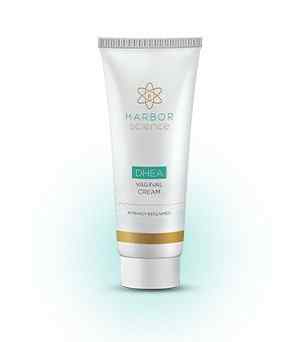Dryness "Down There" and Painful Sex? Find Out About Dyspareunia, Treatments, and More

Do you experience pain or feel sore after sex? If so, you're definitely not alone. Sexual dysfunction with women is not always as cut and dry as just not wanting to have sex. Low libido can be an issue for some women, but other problems can be at play. Sex should be an enjoyable, intimate encounter. Unfortunately, for at least 60 percent of women with dyspareunia, painful sex can mean that while the desire for sex is there, the end result is a not so pleasant experience.
Loosely defined, dyspareunia is a term used in the medical community for painful sex. People who have dyspareunia may experience recurring issues with pelvic or genital pain either before, during, or after sexual intercourse.
Even though dyspareunia is loosely defined as pain associated with sex, the condition itself can be much more complicated. How a woman may experience pain can vary. One woman may have pain with penetration, one may experience vulvar pain with only stimulation, and yet another may be dealing with severe pelvic pain only immediately after sex.
In general, regardless of the specifics of the type of pain, dyspareunia can have a huge impact on overall sexual well-being. Women who experience pain with sexual stimulation or intercourse obviously grow less interested in sexual activity. Beyond that, less frequent sex can mean a general sense of feeling physically and emotionally unsatisfied.
As a side note, vulvodynia is another term that often gets mistakenly used interchangeably with dyspareunia. However, vulvodynia is a form of chronic vulvar pain that may not always be associated with touch or sex.
The odd connection between brain activity and genital pain can't be disregarded. Nerve fibers found in the vagina, cervix, and vulva are often less sensitive to pain than other regions of the body. However, pain signals can be routed to the spinal cord during repetitive stimulation.
Here's where it gets interesting: animal studies have shown that nerves from the reproductive areas, gastrointestinal tract, and urinary system all have connections to the same spinal cord segments as nerves from the legs, skin, and abdomen. Therefore, vaginal, urinary, or even gastrointestinal pain can have unusual patterns or physical presentations for the individual. With that understanding, dyspareunia treatment may require more than one approach.
So, how do you know if pain during sex or pain after intercourse means that there is truly something wrong? The top complaint is usually just pain with sex, but some examples of the types of complaints you may have include:
- You experience a burning sensation after sex
- You notice you have an irritated, swollen vulva with stimulation
- You consistently feel sore after sex
- You experience deeper pelvic pain during intercourse
Where and how you experience pain can determine what type of dyspareunia you are dealing with. Dyspareunia can be categorized into multiple types of pain down there, so to speak.
Pain at the Vaginal Entrance
Pain at the vaginal entrance can mean you have pain around the labia or vulva. Pain with initial penetration can also be related to a lack of vaginal lubrication. The most common form of dyspareunia is actually caused by a swollen vulva, which is known to affect about 8.5 percent of premenopausal women.
Pain in the Vaginal Canal
Pain experienced deeper in the vaginal canal can be related to either lack of vaginal lubrication or vaginal atrophy. Vaginal atrophy is a vaginal health concern for as many as 40 percent of postmenopausal women. Vaginal atrophy is essentially the degeneration of vaginal tissue; a woman can experience everything from bleeding after sex to a burning vagina. Lack of lubrication also causes undue friction against the inner vaginal walls during penetration, which can result in pain. For women approaching menopause or in menopause, both vaginal dryness and vaginal atrophy can be to blame.
Pain in the Pelvis
Pelvic dyspareunia may have significant root causes that need to be addressed. For example, pelvic inflammatory disease (PID) can cause severe inflammation of the deeper pelvic tissues, and pressure on those inflamed tissues during sex can lead to pain that seems to radiate from deep inside your body. Fibroids, endometriosis, and ovarian cysts may also lead to deeper-felt pain.
One of the most common causes of dyspareunia is vaginal dryness due to a drop in estrogen levels, which may be related to menopause or other medical issues. Vaginal dryness can lead to a number of uncomfortable sensations that can make sexual encounters far less enjoyable, and in many cases, painful. Thankfully, treatment for vaginal dryness is relatively common. A number of approaches may help encourage natural lubrication.
Localized hormone replacement therapy (HRT) is one of the effective ways to address both vaginal atrophy and vaginal dryness. The most common form of localized HRT is estrogen-based cream, such as Estriol vaginal cream. This cream is considered a standard option because research has shown it can:
- Restore natural lubrication
- Balance the pH levels of the vagina
- Thicken the vaginal walls
- Help deter dyspareunia
Estriol vaginal cream is actually one of the most popular products we have available at Harbor Compounding Pharmacy. The cream is easy to use and has been shown to be highly effective in clinical trials.

DHEA (Dehydroepiandrosterone) cream can significantly help with vaginal atrophy. What does DHEA do? Studies have shown that DHEA can help with:
- Inducing natural vaginal lubrication
- Improving vaginal dryness during sex
- Deterring dyspareunia
- Achieving orgasm
The rate of symptom improvement with DHEA cream is really impressive. As many as 39 percent of study participants reported better vaginal lubrication, 57 percent reported improved vaginal dryness during sex, and 75 percent claimed they achieved orgasm. Another one of the often overlooked DHEA benefits, the average cost is only about $60 for a 30-day supply at Harbor Compounding pharmacy.

One of the latest solutions for women who deal with dyspareunia is oxytocin vaginal gel. Oxytocin is a peptide hormone often referred to as the "love" hormone because of its significant role in sex, arousal, and sexual desire. Research has shown that topical application of oxytocin gel may help reduce:
- Vaginal itching
- Dysuria
- Bleeding after sex
- Pain or discomfort with vaginal sexual activity
The mechanisms for how topical oxytocin can help in these areas is thought to be related to the fact that oxytocin aids in cell proliferation, which may thicken the vaginal walls. Another interesting note, oxytocin may support vaginal health by helping wound healing, blood flow, and nutrient transport to cells in the area. In one study, 47 of 70 women saw improvement with oxytocin gel treatment. Many of our patients at Harbor Compounding Pharmacy have experienced improvements of vaginal atrophy with the use of oxytocin vaginal gel, which can naturally lead to fewer issues with painful sex.

At Harbor Compounding Pharmacy, we make it our priority to provide only the best care to our patients. Each patient can have unique needs, especially when it comes to sexual health and wellness. If you are dealing with either vaginal dryness or painful sex, we are happy to discuss the products we have available that may help. Reach out to us at 949-642-0106 to find out how we can help you find the treatment that drastically improves your sex life as well as your overall quality of life.



